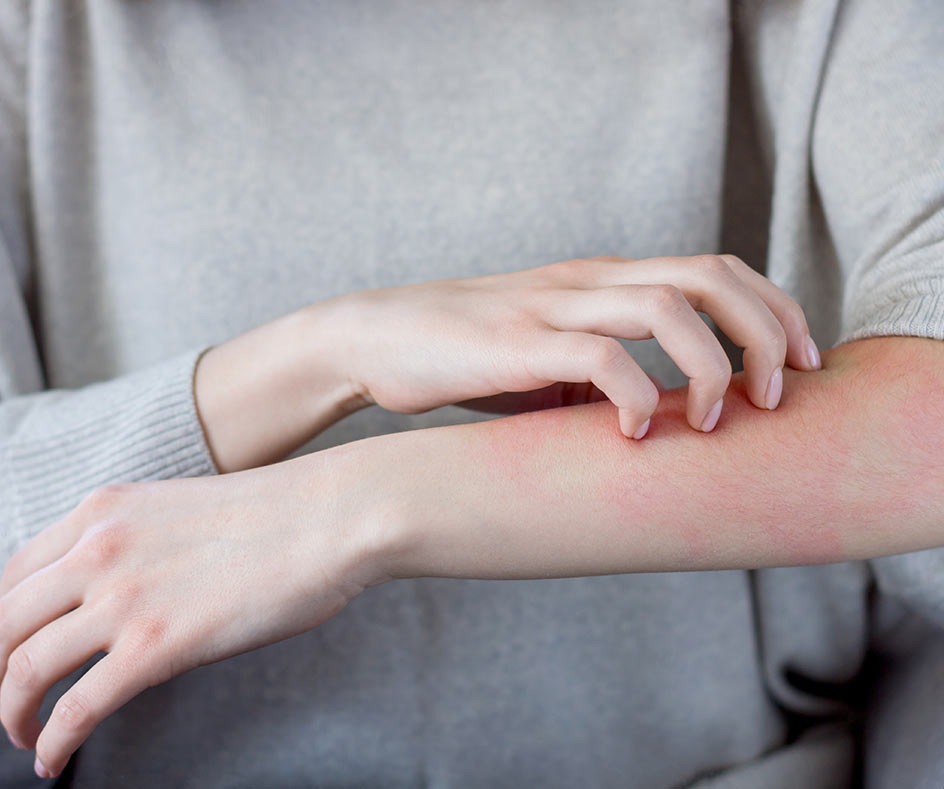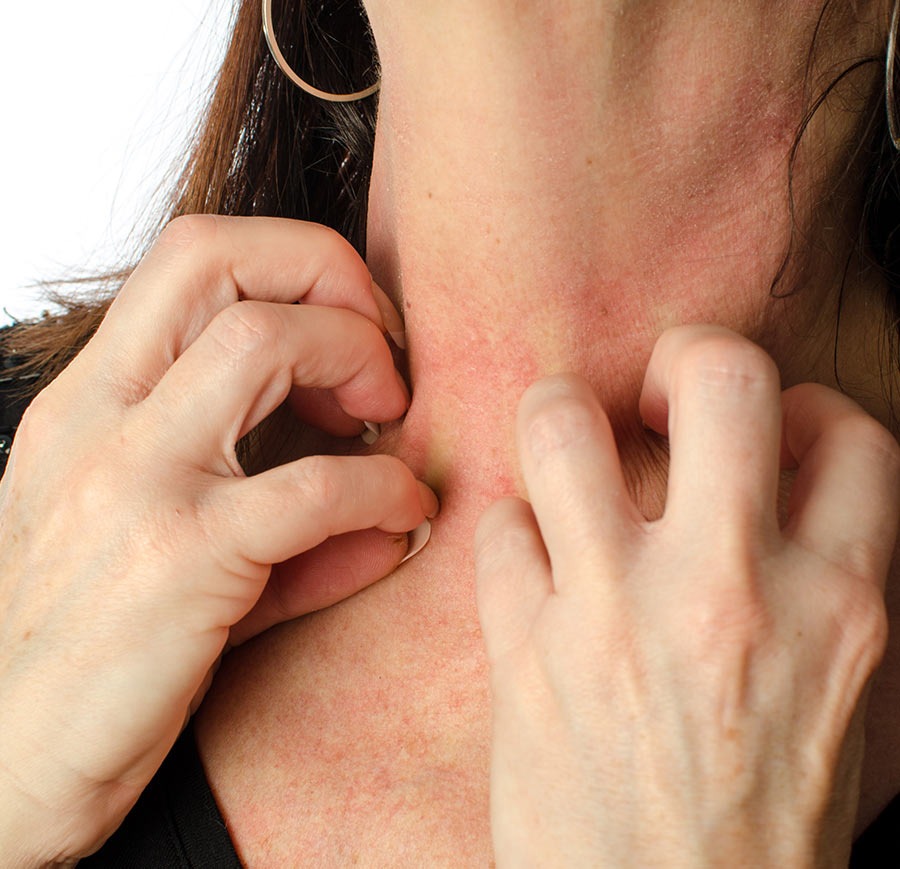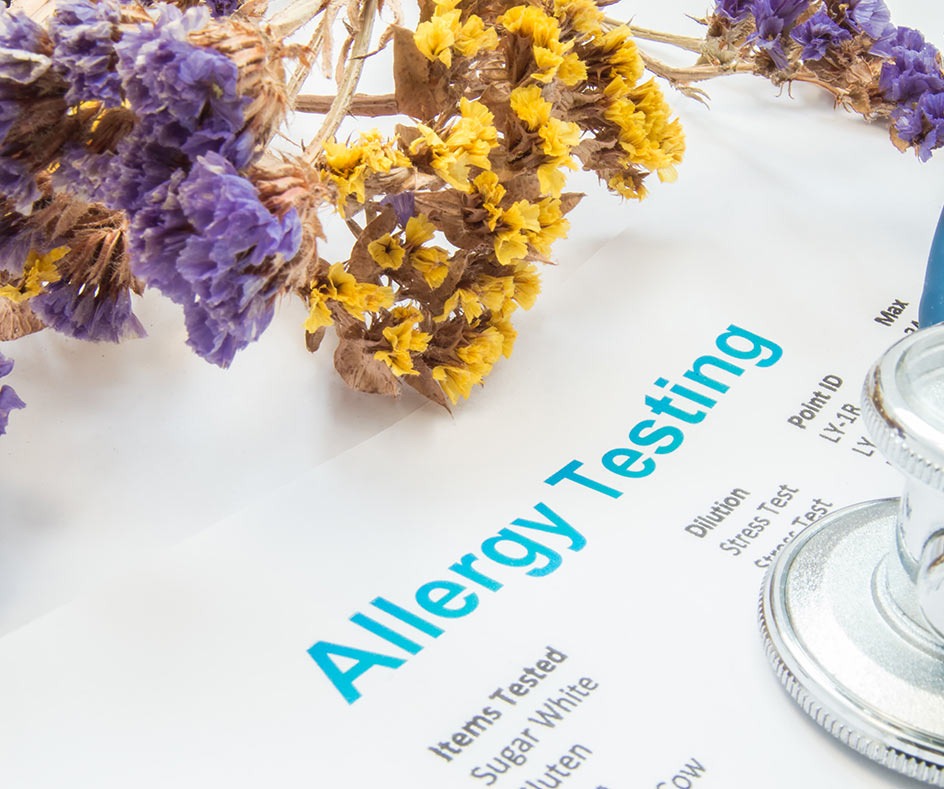Located at 20 Old Brompton Road – Just Steps from ![]() South Kensington Tube. Easy Access, Always.
South Kensington Tube. Easy Access, Always.
We provide allergy testing services in London for both adults and children. Our expert medical team offer blood testing for allergy diagnosis, including food, inhalants and environmental allergens.
Allergy blood testing panels are conducted via a simple blood draw, with results returning to you directly from the laboratory. These panels offer a vast array of screening for the most common allergens, so it's best suited for those suspecting an allergy, but uncertain if this is the case.

Allergies are hypersensitive reactions from the immune system responding to substances that enter or contact the body. The allergens may include irritants like pet dander, bee venom or pollen.
Any substance can be an allergen, provided it triggers an adverse reaction from the immune symptoms to produce reactions.
Any substance that causes any allergic reaction is known as an allergen. These allergens may be in the environment, foods or drinks.

Allergies range from mild irritation to extremely severe reactions, which may be life-threatening. Common allergic conditions include:

The test is conducted from a blood sample collected at the clinic and referred to a laboratory for analysis.
They detect the presence of allergen-specific immunoglobulin E (IgE) antibodies that float around in the bloodstream. It is this IgE antibody that produces the symptoms of an allergy. These antibodies are produced in contact with normal proteins contained in food and can be detected via this simple laboratory test.
We provide different tests, including the negative control, positive control and eight chosen allergens for the primary skin prick test.
The skin prick testing cost is £400 including the consultation, but you can add about five more antigens, with each costing £10.
Blood testing panels vary in price, depending on the profile selected, please see our fees page for more information.
Several treatment options are available for people with an allergy. The treatments include modern immunomodulating or biological medicines. However, allergies are unique to patients, and you need to discuss the most suitable treatment with the immunologist.


Visit GP London Clinic to see an immunologist for your allergy testing. You can also contact us at 020 70434317 to book an appointment for your allergy testing in South Kensington, London.
The antibody test for antigen-specific IgE checks for any allergy to certain substances. The test usually done when performing a skin prick test isn’t an option. If significant eczema or dermatitis is present or the patient takes antihistamines, it can interfere with interpreting or performing the skin prick test.
The antigen-specific IgE test has limited use in assessing patients that have outgrown an allergy. This test will still give a positive result for patients that have outgrown an allergy. It will likely stay positive for patients who have had successful immunotherapy procedures.
This antibody testing is suitable for those who experience symptoms suggesting they are allergic to one or several substances.
A negative allergy result means you may not have a true allergen, an immunoglobulin E-mediated response to a particular allergen. However, using and interpreting an antibody test of allergen-specific IgE requires caution.
No perfect test is available, but a negative test indicates you aren’t addicted to the substance, and it doesn’t cause an allergy.
An elevated result likely indicated an allergy. But, not all patients who undergo the test have the same physical allergic reaction when exposed to the substance. The patient is classified as sensitised, not allergic to the substance in certain cases.
The amount of a specific IgE doesn’t indicate the severity of the reaction. However, the higher the amount of IgE, the more likely a patient will have any form of reaction to allergens. Confirming an allergy diagnosis will require your allergy test and your medical history.